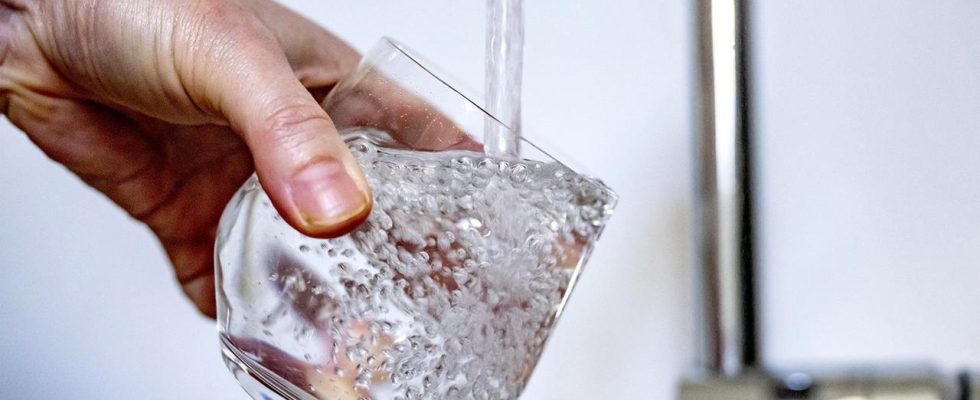According to the municipal water suppliers, the cost of drinking water could rise – due to new European Union rules, for example on the control of springs and pipes. The plans are “too expensive, too vague and too bureaucratic”.
The municipal water suppliers have warned of rising drinking water prices for consumers in Germany. The reason for this is the EU drinking water directive on water quality, which the federal government is to implement by regulation. “With the drinking water catchment area ordinance, we and consumers are facing significant additional expenses in the high three-digit million range,” said Karsten Specht, Vice President of the Association of Municipal Enterprises (VKU), the “Neue Osnabrücker Zeitung”.
With the ordinance in its current form, “official tasks would be shifted to the water suppliers”. The plans are “too expensive, too vague and too bureaucratic”. In a fire letter to Federal Environment Minister Steffi Lemke (Greens), the companies concerned summarized their concerns and criticized “disproportionate requirements and obligations in water protection”, according to the “NOZ”. These are “not manageable or only with considerable effort”.
The handling of microplastics should also be regulated
The EU directive focuses on the quality of drinking water and its monitoring. It provides for the mandatory introduction of a risk-based approach from the source to the tap. It contains provisions for the control of tap water, but also of sources of drinking water and pipe networks, in order to limit the risk of harmful effects of environmental pollution on human health and resources. In addition, issues related to pollutants such as microplastics are regulated.
In addition, Member States are obliged to improve access to safe drinking water for all and especially for vulnerable groups. In addition, citizens should have access to information about the water suppliers and the quality of drinking water in their residential area. The aim of the EU: to increase consumer confidence in tap water and thus reduce waste from plastic water bottles. According to the EU Commission, Europe now has the highest standard for drinking water in the world as a result of the measures.
Germany already in default
The Commission presented the proposal in 2018 in response to the Right2Water citizens’ initiative. At that time, 1.6 million people supported the initiative for better access to clean drinking water with their signatures. In December 2020, the European Parliament and the Council finally adopted the new rules.
The traffic light coalition is planning a corresponding new ordinance in view of the guideline for the catchment areas of drinking water production. However, the government is already in arrears with this, which is why infringement proceedings are underway against Germany. The EU states should have implemented the directive by mid-January. At the beginning of April, the Federal Ministry for the Environment presented a draft bill on catchment areas for drinking water extraction points.
VKU demands “clear touch-ups”
According to the suppliers, this draft regulation means expensive bureaucracy due to additional data collection as well as control and reporting obligations. “Contradictory requirements and tasks that cannot actually be carried out cause us great concern,” said VKU Vice President Specht. Despite the time pressure, he called for “significant improvements”.
The municipal water suppliers therefore “largely rejected” the present draft regulation. The paper from the Ministry of the Environment has not yet been agreed within the government, changes are still possible. The VKU members supply about 90 percent of the inhabitants of Germany with drinking water.

